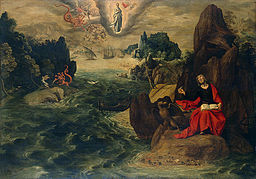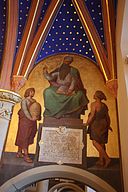Text: Revelation 12:6-17 Proposition: Although the Dragon is in constant pursuit of the people of God, they conquer the Devil by the blood of the Lamb and show that they are the people of God by keeping his commandments. I.…
How to Defeat the Dragon, part 2: Conquering by the Blood of the Lamb and Keeping God’s Commandments


